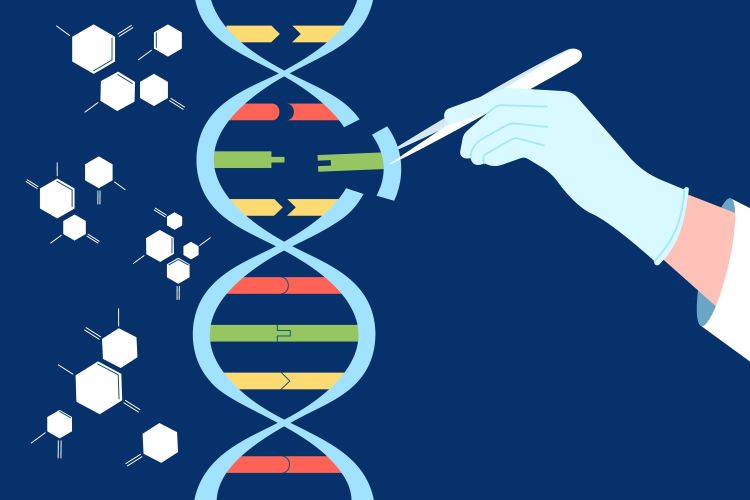First CRISPR-based gene-editing therapy authorised
Posted: 16 November 2023 | Catherine Eckford (European Pharmaceutical Review) | No comments yet
The UK Medicines and Healthcare products Regulatory Agency (MHRA) has granted a world-first regulatory authorisation to a medicine based on Nobel Prize-winning technology.


Casgevy (exagamglogene autotemcel), also known as exa-cel, is the first treatment to be licensed that uses CRISPR. It has been conditionally authorised by the UK Medicines and Healthcare products Regulatory Agency (MHRA) as a gene-editing therapy for certain patients 12 years old and over with sickle-cell disease and transfusion-dependent β-thalassemia.
According to Vertex Pharmaceuticals and CRISPR Therapeutics, Casgevy is a genetically modified autologous CD34+ cell enriched population containing human hematopoietic stem and progenitor cells edited ex vivo by CRISPR/Cas9 at the erythroid-specific enhancer region of the BCL11A gene.
It works by editing the faulty gene in a patient’s bone marrow stem cells, enabling the body to produce functioning haemoglobin, the MHRA shared. To facilitate this, a patient’s stem cells are extracted from their bone marrow, edited in a laboratory and then re-infused into the patient.
EMA validates first regulatory submission for CRISPR-based medicine
“To date, a bone marrow transplant – which must come from a closely matched donor and carries a risk of rejection – has been the only permanent treatment option… [however in trials, Casgevy has been shown] to restore healthy haemoglobin production in the majority of participants with sickle-cell disease and transfusion-dependent β -thalassaemia, relieving the symptoms of disease,” Julian Beach, Interim Executive Director of Healthcare Quality and Access at the MHRA noted. The agency stated that the gene-editing therapy has the potential to offer “life-long” results.
The treatment is indicated for eligible patients with sickle-cell disease with recurrent vaso-occlusive crises (VOCs) or transfusion-dependent β-thalassemia, for whom a human leukocyte antigen (HLA) matched related hematopoietic stem cell donor is not available, Vertex Pharmaceuticals and CRISPR Therapeutics confirmed.
Clinical data from ongoing Casgevy/exa-cel clinical trials
MHRA highlighted that in the ongoing trial for sickle-cell disease, 45 patients have received Casgevy. However, only 29 patients have remained in the trial long enough to be eligible for the primary efficacy interim analysis. Of these eligible patients, 28 patients were free of severe pain crises for at least 12 months after treatment with the gene-editing therapy.
In the ongoing clinical trial for transfusion-dependent β-thalassemia, 54 patients have currently received Casgevy. Yet only 42 patients have stayed in the trial long enough to be eligible for the primary efficacy interim analysis, MHRA shared. Of these, 39 did not need a red blood cell transfusion for at least 12 months post-treatment. The remaining three had a reduction of over 70 percent in the need for red cell transfusions.
Side effects from treatment were similar to those associated with autologous stem cell transplants. No significant safety concerns were identified during the trials.
The latest data from these ongoing trials for the CRISPR gene-editing therapy was presented at the European Hematology Association Congress in June 2023.
Future development of the gene-editing therapy
Both trials are ongoing, MHRA added, explaining that additional results will be shared in due course.
“I hope this represents the first of many applications of this Nobel Prize winning technology to benefit eligible patients with serious diseases,” commented Samarth Kulkarni, PhD, Chairman and Chief Executive Officer of CRISPR Therapeutics.
Beach added that the MHRA will continue to closely monitor the safety and effectiveness of Casgevy, through real-world safety data and post-authorisation safety studies being carried out by the manufacturer.
Related topics
Biopharmaceuticals, Clinical Development, Clinical Trials, Data Analysis, Drug Development, Drug Markets, Drug Safety, Gene therapy, Industry Insight, Regulation & Legislation, Research & Development (R&D), Technology, Therapeutics
Related organisations
CRISPR Therapeutics, Medicine and Healthcare products Regulatory Agency (MHRA), Vertex Pharmaceuticals









